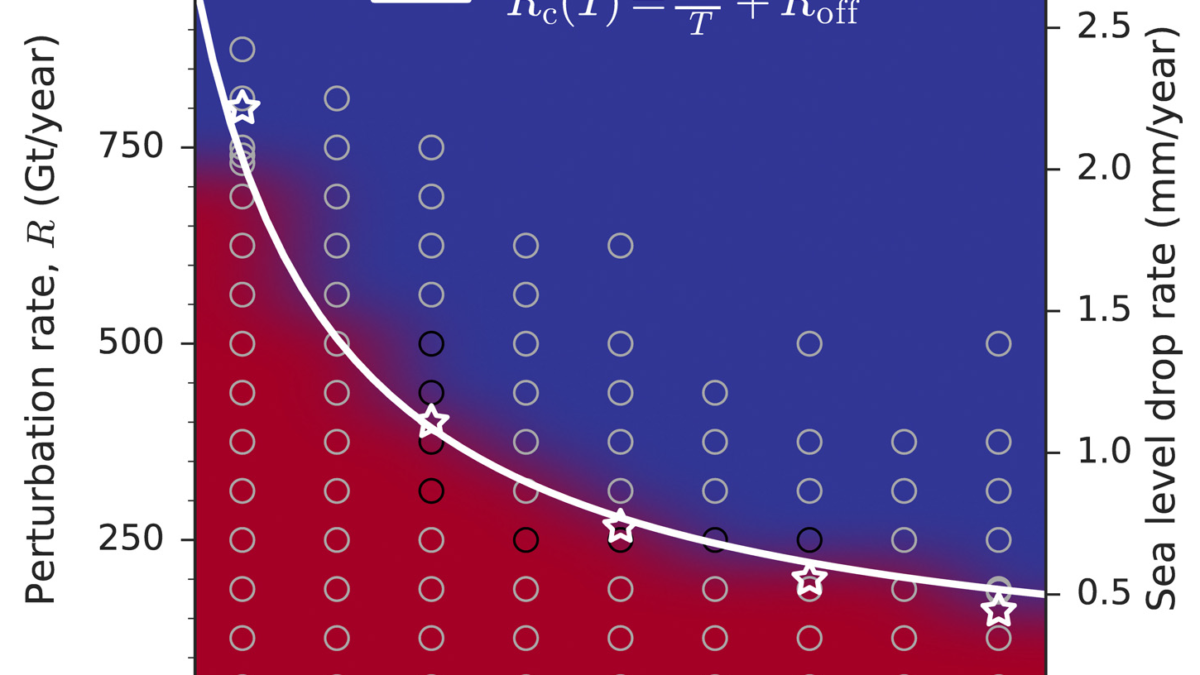What Trump allies’ Project 2025 would mean for the fight against climate change – “Trump would frack the National Mall if he thought it would make a couple of bucks for donors and Big Oil”

By Zack Budryk and Rachel Frazin
13 July 2025
(The Hill) – Project 2025, a controversial conservative roadmap that aims to guide the next Republican administration, calls for the elimination of multiple energy- and environment-related offices and rules — moves that would restrict the government’s ability to combat climate change and pollution.
Policies promoted under the plan would place political personnel in positions to oversee science at major federal agencies and reduce such agencies’ limitations on polluting industries.
The project additionally proposes chopping up several agencies. It called for the National Oceanic and Atmospheric Administration (NOAA), the nation’s oceans, weather, climate and fisheries science agency, to be “dismantled.”
NOAA is home to the National Weather Service (which the plan says should henceforth focus on commercial operations), as well as the Office of Oceanic and Atmospheric Research (which the plan says should be “downsized,” with much of its climate research “disbanded”).
They’re coming in with sledgehammers and scalpels to try and dismantle any barriers to the fossil fuel industries.
Jamie Henn, director of Fossil Free Media
The plan would also eliminate offices within the Energy Department that focus on renewable energy, climate technology and energy technology research. And the Energy Department chapter further calls for a “whole-of-government assessment and consolidation of science,” including “a review of all the federal science agencies.”
In addition, with the help of Congress, Project 2025 seeks to eliminate energy efficiency standards for household appliances. Such standards have been a target of congressional Republicans, who have made multiple efforts to block or roll back Biden administration restrictions on appliances.
Former President Trump has also blasted regulations requiring more efficient lightbulbs, showerheads and a range of other items.
Trump has sought to distance himself from the project in the wake of the leader of the Heritage Foundation, the conservative think tank that put it together, controversially calling for a “bloodless” revolution.
However, many sections of the plan were written by officials from the former president’s first administration — and the provisions on energy efficiency standards are one of many areas where the plan appears to broadly dovetail with policies Trump has called for.
The project would also reinstate a Trump-era measure that moved the Bureau of Land Management (BLM) headquarters to Grand Junction, Colo., for instance — a move critics said effectively pushed out long-time staffers who had been based in Washington, D.C.
In an interview with The Hill, Western Energy Alliance President Kathleen Sgamma, who co-wrote the Interior Department section of the proposal, said that section is “all about increasing [oil and gas] development and production from federal lands.”
Sgamma, who leads a group that lobbies on behalf of the oil industry, said the raft of proposals are intended to reverse Biden administration policies that restricted fossil fuel development on those lands.
Upon taking office, Biden signed an executive order pausing all new oil and gas leasing on public lands, which has since ended. More recently, he signed permanent protections for about 13 million acres in the National Petroleum Reserve-Alaska.
The plan would undo these actions, restoring Trump-era policies that opened up more Arctic lands for drilling, reduced protections for endangered species and implemented restrictions on environmental reviews and other review processes in an effort to bolster infrastructure and energy projects
Some of the blueprint’s proposals for the Interior Department would likely require an act of Congress. For example, the plan also calls for the repeal of the Antiquities Act of 1906, the statute that allows presidents to designate national monuments.
Others, however, could likely be accomplished through the executive branch, such as opening up more Arctic lands for drilling, reducing protections for endangered species and implementing restrictions on environmental reviews and other review processes in an effort to bolster infrastructure and energy projects.
At the Environmental Protection Agency (EPA), the plan calls for the consolidation of science and policy under political officials. Its plans for doing so include appointing at least six political appointees who are in charge of overseeing and changing the agency’s research and science activities.
It also calls for moving high-ranking career officials out of the EPA’s Office of Water, and eliminating the agency’s civil and criminal law enforcement office — instead moving the law enforcement officials to the agency’s office of general counsel.
The law enforcement office, known as the Office of of Enforcement and Compliance Assurance, is in charge of pursuing criminal and criminal penalties when companies break laws by polluting.

Asked about the reason for moving those senior officials out of the water office, Mandy Gunasekara, author of the plan’s EPA chapter, told The Hill some officials who are in those roles could use their positions to put up roadblocks to policy proposals they disagree with. She said moving law enforcement to the general counsel’s office could address “discrepancies” between the people who make the rules and those that apply them.
The EPA section of the plan also calls for an “update” to the agency’s 2009 finding that greenhouse gas emissions pose a threat to human health and the environment. This endangerment finding compels the EPA to do something to address the threat of these emissions.
It’s not clear whether an “update” could weaken or overturn this finding.
In addition, the plan would make the agency’s consideration of potentially toxic substances more industry friendly and “revisit” a rule that is currently set to bolster the cleanup of cancer-linked PFAS chemicals.
Gunasekara was the EPA’s chief of staff during the Trump administration. She declined to say whether she’d want to serve in a second Trump administration.

The primary architect of the Interior Department section, William Perry Pendley, is also a former Trump official. Pendley was the acting head of the Bureau of Land Management during Trump’s presidency, but he was never confirmed by the Senate — despite leading the agency for more than a year before being ousted by a judge.
Pendley is a longtime advocate of selling off public lands, writing in a June op-ed that the BLM should sell them to resolve housing shortages in the western U.S. He has also denied both the reality of climate change and the existence of a hole in the earth’s ozone layer, called the Endangered Species Act a “failure,” and made headlines for calling undocumented immigrants a “cancer” and claiming that Islam was at war with the U.S.
The project “makes no secret about who wrote this,” said Aaron Weiss, deputy director of the Center for Western Priorities, in reference to Sgamma’s role in the Interior section.
Pendley “would love it if most oil and gas policy was handed over to states even when it comes to federal lands,” Weiss added.

Project 2025 has sparked concerns among environmental advocates. Climate activist Jamie Henn said what alarms him about the project is not necessarily that it’s more extreme than Trump’s proposals, but that it’s more specific.
“Trump would frack the National Mall if he thought it would make a couple of bucks for donors and Big Oil,” said Henn, director of Fossil Free Media, a nonprofit that supports ending fossil fuel use.
But he said “Trump tends to speak in slogans,” while “this is a plan that really gets into the details.”
“We’re not only going agency by agency, we’re going into every single agency program,” Henn said. “They’re coming in with sledgehammers and scalpels to try and dismantle any barriers to the fossil fuel industries.”
The project’s proponents said its goals are to get a conservative administration ready for action with a detailed policy plan.
“My goal is very much parallel to the goal of the whole project, and it’s to make sure that the next opportunity conservatives have to lead the administration, we don’t lose any time,” Gunasekara told The Hill.
She described her aim in drafting the plan’s EPA section as “1. set out a clear policy vision and then 2. figure out the steps it would take to ultimately implement that in the most efficient manner possible.”
What Project 2025 would mean for the fight against climate change

Trump allies target NOAA climate research
By Scott Waldman
10 April 2024
(E&E News) – Allies of former President Donald Trump don’t just want to muzzle federal climate science if he wins a second term — they also want to upend the agencies that fuel such research.
The strategy is outlined in a governing playbook known as Project 2025 that was written by the Heritage Foundation and dozens of other conservative organizations. It’s designed to serve as a road map for a second Trump administration, and it includes suggestions such as using an executive order to reshape “climate change research programs.”
Adjacent to this effort is a push to scramble the broad government apparatus that collects climate and weather information.
The Project 2025 report takes aim at NOAA, suggests the National Weather Service commercialize its forecasting operations and says information from the National Hurricane Center should be “presented neutrally, without adjustments intended to support any one side in the climate debate.”
Reorganizing NOAA is a key component of these plans. The Project 2025 report says NOAA should be “broken up and downsized” because “its current organization corrupts its useful functions.”
The document describes the agency’s office of Oceanic and Atmospheric Research as the “source of much of NOAA’s climate alarmism” and says the “preponderance of its climate-change research should be disbanded.”
NOAA did not respond to a request for comment.
The Project 2025 report is less blunt on the other recommendations, but they align with perennial conservative ambitions and complaints.
The plan says the National Weather Service should “focus on its data-gathering services” and “fully commercialize its forecasting operations.” That’s in line with a long-standing push by some conservatives to foster greater private sector involvement in weather forecasting.
The National Hurricane Center’s mission is centered on informing and warning the public about potentially deadly storms, and as part of that work, it has connected the effects of climate change to hurricane intensity. The brushback it gets in the Project 2025 playbook speaks to past insinuations from Republicans that government agencies are manipulating data to make climate change appear worse.
The Heritage Foundation, which is leading to the Project 2025 effort, did not respond to two requests for comment.
Thomas Gilman, who wrote the Project 2025 chapter outlining the proposals, refused to answer questions when reached on his cellphone.
“I’d rather not discuss it with the press,” he said, before ending the call.
‘Not just unhinged’
The focus by Project 2025 on NOAA and its climate programs mirror concerns raised recently by a handful of congressional Republicans. Conservative lawmakers led by Sen. Mike Lee (R-Utah) have questioned climate data that has been gathered at hundreds of NOAA weather stations across the country.
In a letter last month to NOAA Administrator Richard Spinrad, Lee and three other Republicans suggested NOAA data keeping was flawed and that it was being manipulated to increase agency funding levels.
“Your agency presents its climate reports as a matter of scientific fact, but we now know that the data is not collected in a rigorously controlled scientific environment,” the lawmakers wrote. “‘Faking it until you make it’ has become the mantra of the Biden administration’s climate policy.”
Lee was joined on the letter by Sen. Ron Johnson (R-Wis.), Sen. Pete Ricketts (R-Neb.) and Rep. Harriet Hageman (R-Wyo.). Only Lee’s office replied to a request for comment.
Lee spokesperson Billy Gribbin said the lawmakers want “increased Congressional oversight on NOAA’s data collection process, because the American people shouldn’t be suffering under policies that are rooted in junk science.”
The lawmaker’s effort is based on a misleading report from the Heartland Institute, an advocacy group that has received funding from fossil fuels companies. The Heartland report, which is cited in the lawmakers’ letter, claims the government’s method of collecting climate-related data has been compromised because the location of its data collection stations is in cities and therefore is exaggerating temperature records.
NOAA uses sophisticated equipment that accounts for the urban heat island effect, and its data is peer-reviewed by independent scientists. Its data is widely used by researchers across the globe.
The efforts by Lee and his colleagues is part of a yearslong effort by conservative lawmakers to not just block climate policy but also discredit climate science itself. For years, lawmakers such as former Rep. Lamar Smith (R-Texas) and former Sen. James Inhofe (R-Okla.) falsely accused NOAA of faking climate data to make rising temperatures appear hotter.
“The American people have every right to be suspicious when NOAA alters data to get the politically correct results they want,” Smith said in 2015.
In Congress, conservative lawmakers have been aided in their quest to attack climate data by a relatively small group of researchers with legitimate academic credentials who claim the world’s premiere science agencies are purposely misleading the public about global warming.
One is David Legates, a professor emeritus at the University of Delaware who has received funding from fossil fuel companies and served as a senior NOAA official in the Trump administration. Legates, who could return to a senior science job in a second Trump administration, helped write the NOAA chapter of Project 2025.
Legates has a long history of attacking historical climate data. He has described climate policy as a form of societal control and claimed a warming world would benefit society. Legates had to resign from his post at Trump’s White House Office of Science and Technology Policy after he attempted to publish discredited climate claims as official government documents.
Legates did not respond to requests for comment.
The Trump campaign did not respond to a request for comment, but the campaign has described Project 2025 as suggestions from allies.
James Singer, spokesperson for President Joe Biden’s campaign, said the Project 2025 proposals “are not just unhinged, they are dangerous.”
“Americans need federal agencies like NOAA and the National Hurricane Center to be reliable to keep themselves and their loved ones safe,” Singer said.
“But this is what Americans can expect from Donald Trump, who as President abandoned the NSC’s pandemic unit, suggested nuking hurricanes, lied about storms paths, said injecting Americans with bleach would kill sickness, and denied basic climate science,” Singer added. “It’s no surprise his allies’ Project 2025 agenda builds on that extreme legacy.”




One Response
Comments are closed.